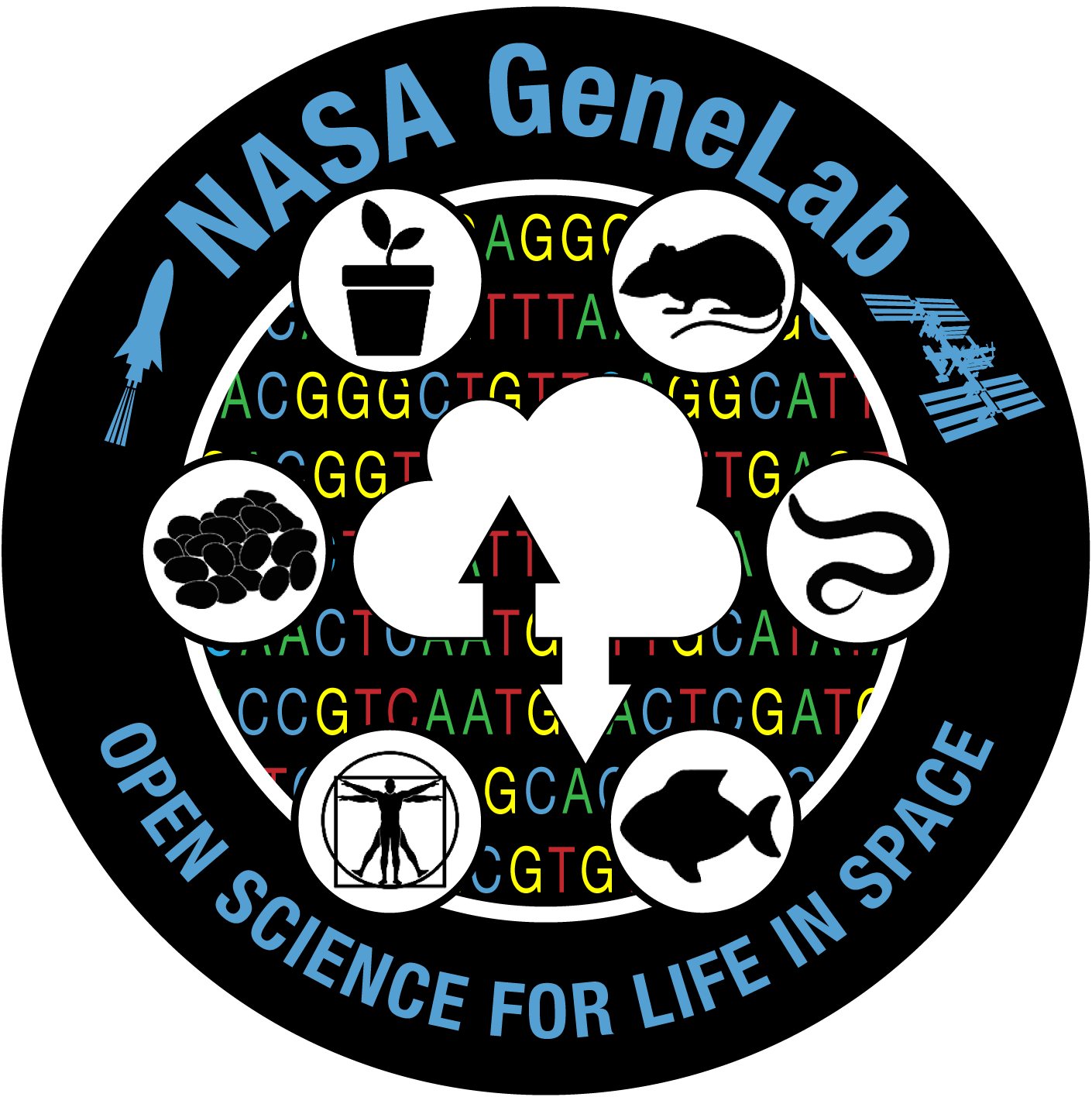Greetings From GeneLab!
We are writing to inform you that we have new datasets available through the GeneLab Data System. Direct links to the individual data sets are provided here: Omics Analyses of Mouse Liver in Microgravity on the Rodent Research-1 Payload
New NASA Space Biology Request for Information (RFI) on Reference ‘Omics Experiments for GeneLab Science Definition Team
Solicitation Number: NNH16ZTT001L
Release Date: Nov 05, 2015
Response Date: Feb 05, 2016
NASA's Space Biology program investigates primary mechanisms behind changes in living systems due to spaceflight and microgravity in hopes of developing the foundations for a human presence in space for extended periods in preparation for exploration. Another goal is to apply this knowledge and technology to improve our nation's competitiveness, education, and the quality of life on Earth.
NASA seeks inputs to this RFI so that it can design ‘omics reference experiments needed by the Space Life Sciences community. NASA will establish an internal Science Definition Team (SDT) to use the community inputs provided by respondents to this RFI (and a subsequent workshop) to design one or more reference experiments/investigations. After the experiment, the raw data will be posted online at the NASA GeneLab data repository website (https://genelab-data.ndc.nasa.gov). It is anticipated that the results will be used to issue open solicitations for proposals from the science community for further bioinformatics analysis.
The full text of the RFI and response instructions can be found at:
http://tinyurl.com/NNH16ZTT001L.
Responses must be submitted electronically using the NSPIRES web site. This RFI is open to responses from all parties including commercial entities, international organizations, academia, NASA Centers, and other government agencies. The information obtained will be used by NASA for planning and acquisition strategy development.
NASA will use the information obtained as a result of this RFI on a non-attribution basis. Providing data and information that is limited or restricted for use by NASA for that purpose would be of very little value and such restricted/limited data/information is not covered under this request. No information or questions received will be posted to any website or public access location. NASA does not plan to respond to the individual responses. The Government does not intend to award an award on the basis of this RFI or to otherwise pay for the information solicited.
In addition to the data releases, GeneLab attended the following meeting:
American Society for Cell Biology (ASCB)
GeneLab and Space Biology staffed an exhibit booth at the annual meeting of the American Society for Cell Biology (ASCB), December 12-15, 2015 in San Diego, California. An estimated 9000 attendees participated in a packed schedule over five days. During the three exhibit days over 200 visitors engaged NASA scientists to learn more about the cell biology research NASA supports and hear about the upcoming funding opportunities for the GeneLab Innovation Awards and the Space Biology program. Many new investigators who visited the booth were introduced to GeneLab and encouraged to explore the omics data sets currently available in the data system. Also on hand was a disposable flowpath assembly for demonstrating NASA’s spaceflight cell culture capabilities of the Bioculture System.
Of the visitors to the booth, approximately 50% were junior or senior researchers looking for grant funding opportunities, 30% were post-doctoral candidates seeking fellowship opportunities, 10% were students seeking internships and the final 10% were fellow exhibitors who were for-profit companies seeking information on how to do business with NASA. There was also interest from several senior researchers wanting to learn about accessing space-flown rodent tissues through the Biospecimen Tissue Sharing Program. In addition to the exhibit booth, NASA scientist Dr. Sigrid Reinsch presented a poster on GeneLab titled, “GeneLab: A systems biology platform for spaceflight omics data.” Space Biology Principal Investigators Drs. Elizabeth Blaber and Eduardo Almeida presented their co-authored poster, “CDKN1a/p21 regulates load-dependent stem cell-based osteoprogenitor differentiation into mineralized tissue.” NASA representatives from Ames Research Center who participated in staffing the booth included: Sandy Dueck, Elizabeth Keller, Sigrid Reinsch, Elizabeth Blaber, and Eduardo Almeida. The interest level from the ASCB attendees at the 2015 annual meeting was very high with a number of booth visitors expressing surprise and excitement that NASA engages in, and funds cell biology research.
Dr. Reinsch also participated in a workshop entitled “Foundational Cell Biology: Making BIG Data Accessible for Teaching and Learning.” There were approximately 100 people in attendance at the workshop, mostly college and university professors. Dr. Reinsch briefly presented a synopsis of GeneLab. The participants were very impressed with the open nature of the database, and there was general interest to use the GeneLab datasets for classroom learning. Several participants with systems biology expertise were pleased to hear that there will be future funding for analysis proposals.
Sandy Dueck participated in a workshop entitled “Simple Social Media for Scientists” to learn tools to promote GeneLab through scientific social media networks.
Sincerely,
The GeneLab Team

